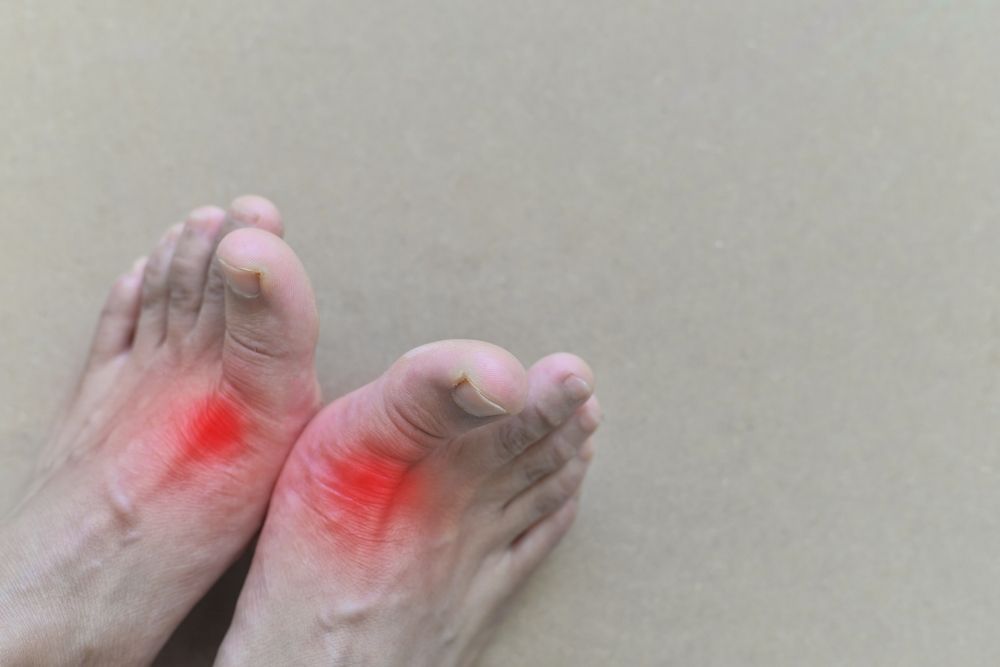If you are living with gout, you may wonder how long each flare-up will last. Unfortunately, there is no one-size-fits-all answer to this question. Each person’s experience with gout will be different. However, by understanding the various factors that can affect gout duration, you can better understand what to expect. Keep reading to learn more about how you can remedy a gout flare-up.
What Is Gout?
Gout is a chronic form of arthritis that causes severe pain due to a build-up of uric acid in the joints. The body breaks down purines, found in many foods, to create uric acid, and too much of it in the blood can form solid crystals in the joints, leading to inflammation and pain. Gout flare-ups may last a few days or a couple of weeks. There is no cure for gout; however, there are treatments and lifestyle changes that can help reduce symptoms and keep the condition under control.
Symptoms of a Gout Flare-Up
The big toe is the typical location of gout, but you also may experience gout in other toes, the ankles, or the knee. A flare-up is usually characterized by the following:
- Sudden, intense pain in the affected joint
- Redness and swelling
- The joint is warm to the touch
- Extreme tenderness
At-Home Treatment
While gout can be painful, several at-home treatments can help to relieve symptoms. Trying the following may help reduce some of the pain and swelling:
- Apply an ice pack to the area for 20 minutes
- Take an over-the-counter anti-inflammatory medication such as ibuprofen
- Elevate the affected body part
When Should You Seek Medical Treatment?
If this is the first time you are experiencing any of the listed symptoms, you should contact your primary health provider as soon as possible. If gout is left untreated, it can spread to the other joints and cause permanent damage. In addition to joint damage, it can also cause bone loss, kidney stones, and kidney disease.
How to Prevent A Gout Flare-Up
Flare-ups are often unpredictable and can occur without warning. However, there are some things that you can do to help prevent gout flare-ups from occurring.
- Drink plenty of water which helps flush uric acid from your body.
- Avoid foods that are high in purines, such as seafood, organ meats such as liver, fatty foods, and fried foods.
- Avoid alcohol and beverages sweetened with high-fructose corn syrup
- Avoid sugary and highly processed foods
- Exercise regularly
- Maintain a healthy weight to prevent stress on your joints
We Can Help
Gout is a chronic condition, and a flare-up can come on suddenly. If you are experiencing any of the common gout symptoms, it is essential to seek medical treatment. The sooner you start on a course of treatment, the less likely you are to experience long-term damage and pain. And, with treatment, your flare-up will last a couple of days instead of a couple of weeks. Our team at Advanced Rheumatology of Houston can help you get started on the path to recovery. Call (281) 766-7886 and schedule an appointment today to discuss your situation.



